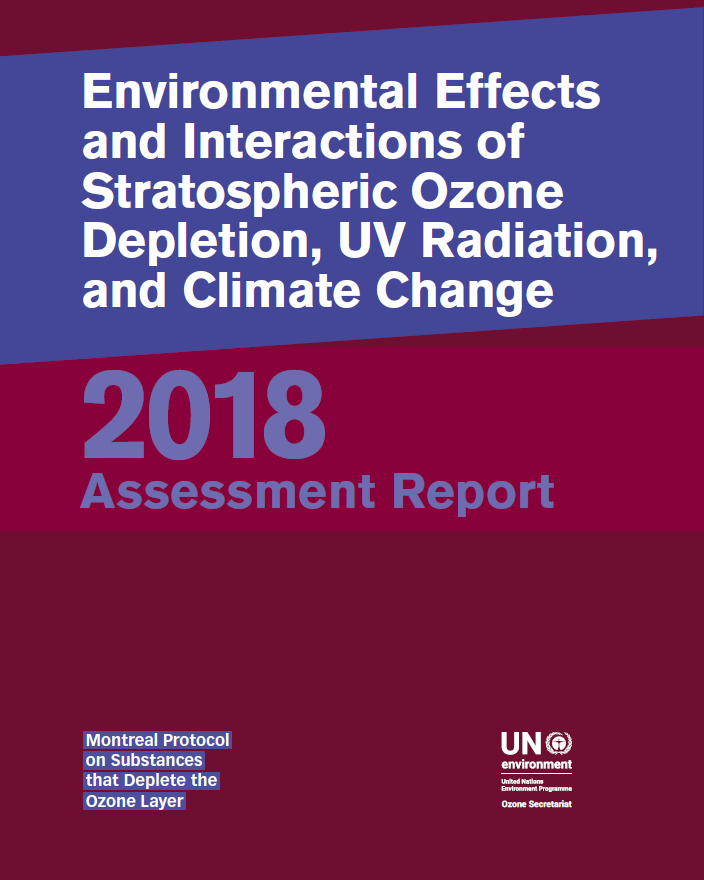UNEP-report on the effects of stratospheric ozone depletion published

The latest UNEP-report on the effects of stratospheric ozone depletion has now been published.
The “Montreal Protocol on Substances that Deplete the Ozone Layer” is a global agreement to protect the Earth’s ozone layer by phasing out the production and consumption of ozone-depleting substances, such as CFC’s. The global agreement was signed in 1987 and is an example of a highly successful international effort to protect the biosphere. In fact, the Montreal Protocol has helped to avoid large, and potentially catastrophic, increases of solar UV‑B radiation in the biosphere. As part of the Montreal Protocol, the Environmental Effects Assessment Panel assesses impacts of ozone layer depletion and changes in UV-radiation. The panel is made up of scientists from throughout the world, and especially experts in photobiology and photochemistry. Prof. Marcel Jansen is the Irish co-author of the report.
The 2018 report, “Environmental Effects and Interactions of Stratospheric Ozone Depletion, UV Radiation, and Climate Change: 2018 Assessment Report”, also known as the “ninth Quadrennial Assessment”, has now been published. The full report can be downloaded directly from the UNEP website (https://ozone.unep.org/science/assessment/eeap). The 381-pages report captures the latest scientific understanding on impacts of ozone layer depletion. The ninth Quadrennial Assessment places strong emphasis on the novel challenge of interactive effects of ozone depletion and climate change on human health and the environment.
Chapter 3, entitled “Linkages between stratospheric ozone, UV radiation and climate change: Implications for terrestrial ecosystems”, assesses the effects of stratospheric ozone depletion and associated changes in ultraviolet-B radiation (UV‑B, 280-315 nm) on terrestrial biota, and especially the role of climate change in mediating effects of UV‑B radiation on organisms and ecosystems. The report states that “in some regions ozone depletion is itself contributing to climate change such that ecosystems are being affected by the consequent ozone-driven changes in temperature, precipitation and UV‑B radiation”. In other cases interactive effects of ozone depletion, UV‑B radiation and climate change impact directly on terrestrial organisms and ecosystems, including agricultural systems. Thus, co-exposure to UV‑B and drought, heat or elevated CO2 levels result in new challenges for living organisms, and for the scientists studying these interactive effects.
Plant Stress Research Group
Contact us
School of Biological Earth and Environmental Sciences | Enterprise Centre room 1.06b | North Mall Campus | University College Cork | Cork, Ireland,
